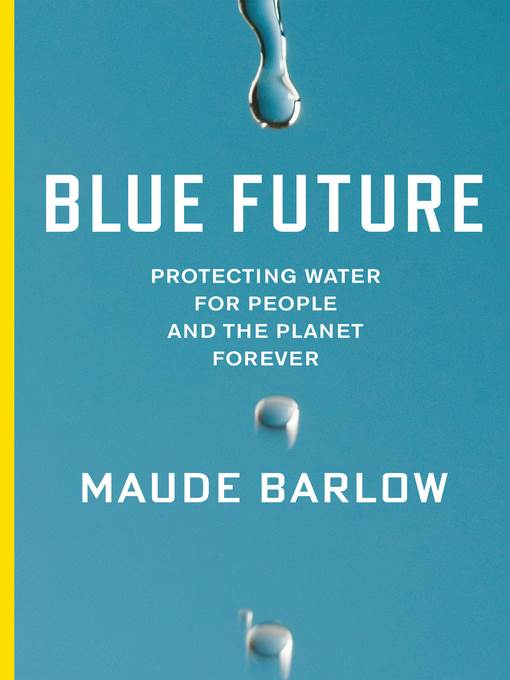
Blue Future
Protecting Water for People and the Planet Forever
کتاب های مرتبط
- اطلاعات
- نقد و بررسی
- دیدگاه کاربران
نقد و بررسی

November 4, 2013
Canadian water activist Barlow follows up Blue Gold and Blue Covenant with a third volume that again sounds alarms about a coming worldwide water crisis. She begins with the 2010 UN General Assembly resolution “recognizing the human right to safe and clean drinking water and sanitation,” noting its potential power as a tool in the “struggle for water justice in the world.” Through statistics and anecdotes, Barlow outlines the need for water justice—whether in agriculture, industry, mining, energy production, or the direct control of water. Multinational corporations pollute water sources, restrict access to clean water, and contribute to desertification and habitat degradation. International treaties and government partnerships enable these behaviors, and mining companies in particular have even taken deadly action against groups that resist them. Barlow offers hope however, highlighting victories by nations and organizations that have won court battles, restored watersheds, and otherwise resisted the lure of money over clean water. She calls for changes in international law to prevent these depredations, along with pushing agriculture towards greater biodiversity. Barlow cites international cooperative efforts that are working to ensure watershed equity in areas of potential conflict. Her work will inspire equal parts outrage and encouragement in anyone who concerned about this most vital natural resource.

November 15, 2013
Blue Planet Project founder Barlow (Blue Covenant: The Global Water Crisis and the Coming Battle for the Right to Water, 2008, etc.) reports on a significant victory in the fight to establish the human right to water but warns that there is much left to do. In 2010, the U.N. General Assembly passed a "historic resolution recognizing the human right to safe and clean drinking water and sanitation," but implementation still remains a problem. According to a recent World Health Organization document, "every three and a half seconds in the developing world, a child dies of waterborne disease." Lack of adequate sanitation services fosters the spread of diseases such as typhoid, cholera and dysentery. Barlow explains that the U.N., despite the resolution, does not consider the right to drinking water a priority. It is considered a "third-generation" human right. These also include the conservation of natural resources for the use of present and future generations. The U.N. directs most of its focus to "first-generation" rights, such as freedoms of speech and religion and the right to a fair trial. Historically, Canada and the United States have led the opposition to implementing second-generation rights--e.g., the rights to employment, health care, housing and social security. The author attributes this to the power of global corporations, including Citibank, Deutsche Bank, Credit Suisse and others. "Privatization of drinking water and wastewater services was deliberately imposed on the Global South by international institutions and water companies" as a condition for financing from the World Bank, which demands that they are "open to dealing with private utilities, most of which were based in Europe." Nor are water resources being conserved, despite the danger that within the next three decades, demand will outstrip supply "by 40 percent." A somewhat strident but important call to action.
COPYRIGHT(2013) Kirkus Reviews, ALL RIGHTS RESERVED.

December 1, 2013
Water activist and author Barlow, founder of the Blue Planet Project, lays out some terrifying unsafe-water statistics as she addresses the need for the international community to move toward a water-secure and water-just world. Barlow asserts that 3.6 million people die every year from water-related diseases, and that by 2030, more than 5 billion may be without adequate sanitation. Even more disturbing, the gap between rich and poor, when it comes to water access, is widening, even though they may live in close proximity. All too often, she writes, tourists and the wealthy have preferential access to clean water . . . while local slums have no running water. Mindful of how droughts and water shortages are impacting every populated region on earth, including America, Barlow focuses on the growing commodification of the resource and effectively argues against water's purchase and sale as a material good. With multiple examples of international arguments in favor of open access to water, Barlow makes a rousing case for what will be one of the key environmental challenges of the twenty-first century.(Reprinted with permission of Booklist, copyright 2013, American Library Association.)

























دیدگاه کاربران